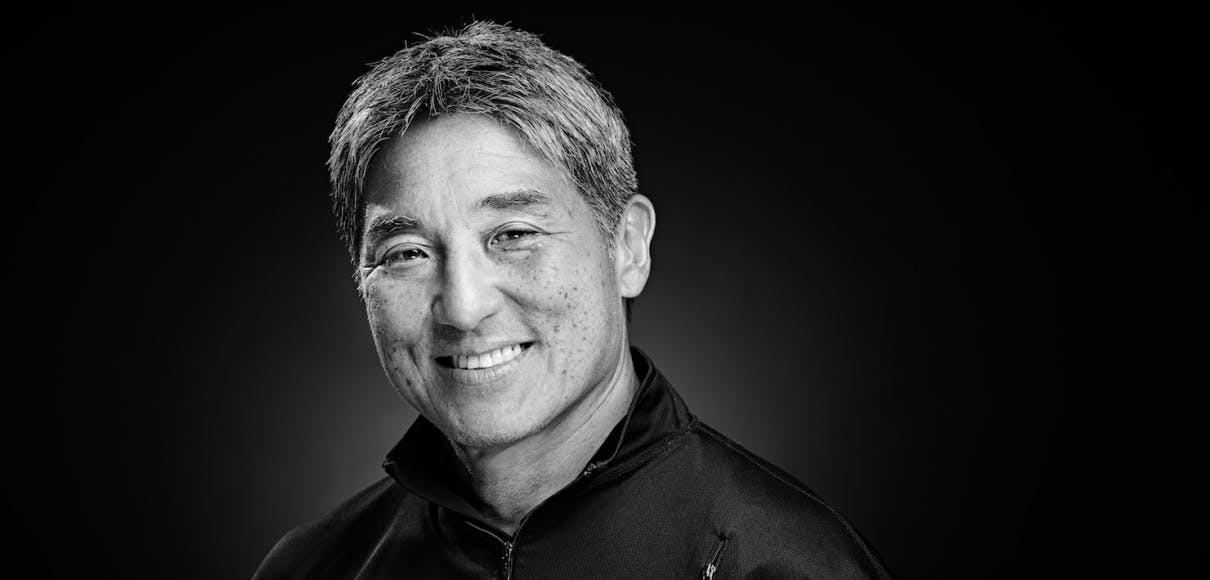Guy Kawasaki knows marketing. The former Apple evangelist and keynote speaker at SPU’s 2019 Downtown Business Breakfast says he did not invent secular evangelism — but he popularized it. The longtime brand evangelist and author of 15 books preaches a kind of “just do it” marketing. His challenge: Take chances; don’t be proud.

When Kawasaki inspires others to “get high and to the right,” he doesn’t mean politically. He proposes that entrepreneurs create a valuable product that is also unique. Envision a scatter plot graph with x and y axes. The position people creating new products should aspire to is in the upper right quadrant: high in value and unique appeal. We asked Kawasaki, who is currently the chief evangelist of Canva, to offer his advice on success and leadership through the technological revolution.
Has anything become increasingly important or more challenging as 2019 brings more digital clamor?
Skepticism. It should be a skill that everybody learns, not to believe everything you read. How to figure out what “the truth” is, because you cannot believe everything you read, at all.
Yeah, for sure. Maybe in a different era you could because you were not consuming it in the same way.
That era is gone.
How will marketing continue to change in 2019? Do you see any macro trends?
I wish it would be as simple as providing content that enriches the lives of your customers. In a perfect world, it would be all about providing simply great content. But it’s not a perfect world. I think that Facebook rocks in this way because as far as I know, it’s one of the best ways to market a product. Through custom audience targeting, I can serve an ad to the exact demographic I want. I can’t see this trend going away.
What are the two most valuable elements of leading through the technological revolution?
Getting to the next curve is important to lead in technological revolutions. And shipping quickly. You also need to have good team of people who love what they do.
Do you think word of mouth is important in this digital age?
More so than ever. There’s two kinds of word of mouth. Everybody has that one friend that you ask them, “Should I upgrade? Should I do this?” That’s one kind of word of mouth. I also think that there’s the word of mouth of a crowd. I just bought a sound bar for my TV. I go to Amazon, and I look at the reviews. They average four and a half stars, I buy it. I don’t know who any of those people are, but I figure that’s better than just believing the marketing material.

The term ‘evangelism’ has a distinctly Christian connotation. What does it mean as it is applied to a brand?
Well, first of all, it means bringing the good news, from Greek, so that’s what a brand does in evangelizing a product. It’s bringing the good news of Macintosh, bringing the good news of Canva. In order to be successful, you must have a great product, because otherwise, you’re not bringing good news. Therein lies the test: Are you bringing good news? Not everything can be evangelized.
What role does God play in your life and leadership?
God provides the moral compass. God is consistent and pure.
How has your personal story or experiences formed your identity?
It hasn’t been extremely easy but I’ve had a fortunate lower middle class upbringing. Because of my parents’ sacrifice, I got a good education. Because of nepotism, I got a job in high tech. And I just worked. Worked hard. It was grit.
Can you explain the impact that this tech revolution has made on Canva or you personally?
Without this tech revolution, I would still be counting diamonds (editor’s note: Kawasaki’s first job was in the jewelry business). So, as far as Canva, I mean, Canva is part of the revolution. Canva could not exist without the internet. We would also not exist were it not for the fact that people want to make graphics. So, if we were still back in the age of typewriters, where people thought it was cool to have a typewritten document as opposed to a cursive document, people wouldn’t be pounding for Canva.

Your book had a lot of practical career advice. What advice do you have for the Millennial or Generation Z?
I would say don’t sweat your first few jobs as long as you’re learning, and don’t leave in less than a year. You have to stay some place at least a year.
Okay, that’s great advice. You dedicated your book to your wife, Beth, as your greatest source of wisdom. What wisdom has she imparted recently?
Humility. She keeps me humble.
What advice do you have for college grads looking to be part of the tech industry?
Just get in. Doesn’t matter where. Doesn’t matter how. Just get in. A rising tide floats all boats. Embrace your role, as long as you’re learning.
This interview has been edited for content and format.




